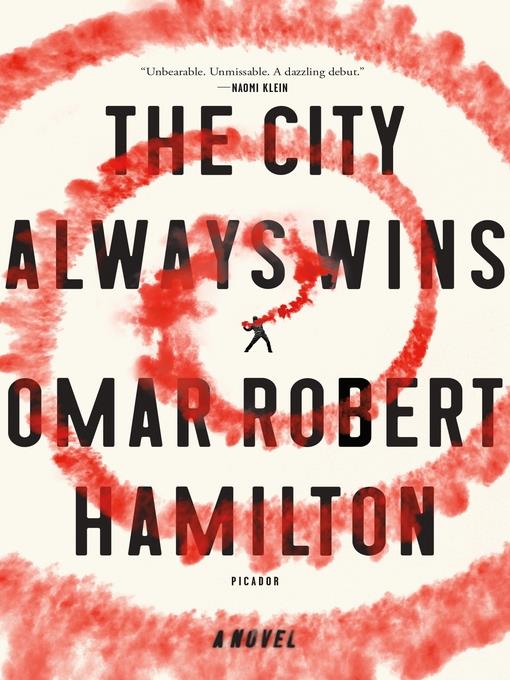
The City Always Wins
A Novel
کتاب های مرتبط
- اطلاعات
- نقد و بررسی
- دیدگاه کاربران
نقد و بررسی

April 10, 2017
A breakneck history of the revolution that began in Tahrir Square, this debut novel from filmmaker Hamilton covers the chaotic period between Egypt’s 2011 elections and the overthrow of the Muslim Brotherhood’s government by the military. The story is told from the perspective of Khalil, a podcaster who chronicles the uprising through recording demonstrations and the stories of those martyred in the struggle. As events spiral out of control, he is forced to “record, splice, upload. No time for artistry,” and as protests in Tahrir degenerate into assaults against women and curfews are declared across the nation, Khalil bemoans that interest is waning outside of Egypt for “the withering spectacle” the revolution has become. Once General Sisi takes power, Khalil is flabbergasted that the man he calls a “black hole of charisma” has turned Cairo into “a military-themed fairground of Sisi sandwiches and fridge magnets.” Much of Hamilton’s book moves at a blistering pace, and he proves a worthy guide to the notable events captured here. But like its narrator, Hamilton’s book is enervated by rallies dwindling to “fifty, sixty people where once there were ten thousand,” and later chapters are prolonged by Khalil’s musings on how Egypt has become “an island floating away from reality.” The book is at its best when recording the events of the revolution, rather than when it serves as an exploration of Khalil’s character and relationships.

April 1, 2017
Two reporters covering Egypt after the Arab Spring collide with ignorance, crackdowns, and tragedy.Hamilton's debut follows Mariam and Khalil, a couple that comes from different backgrounds (she's an Egyptian daughter of two doctors, he's an American-born Palestinian and the son of musicians), who work for Chaos, a media collective determined to spread the word about ongoing government repression in Cairo. They're engaged in deeply asymmetric warfare: as the government shifts from post-Mubarak military rule to Mohamed Morsi to Abdel Fattah El-Sisi, its strong-arm tactics become harsher, and outside support for revolutionaries is slim after the first flower of revolution in 2011; Chaos has plenty of followers and a steady stream of podcasts, but "tweets don't stop bullets." Hamilton, who's worked for a group similar to Chaos, captures the difficulty of arriving at factual clarity in what's effectively a war zone, ping-ponging conflicting quotes, tweets, and Facebook posts across the page. His style and tone reveal how high the stakes are, and the confusion that prevails amid propaganda, but Hamilton's attempts to describe more individual conflicts are only moderately successful. Mariam and Khalil, despite their affection for each other, mainly lament about Egypt's future, and their interactions are often restricted to debating Eric Hobsbawm's writings or engaging in lyrical, sloganeering dialogue. ("You're marching to bring down a fascist. What more is there?" "We need a new answer. The whole world needs a new answer.") That's all the more frustrating because Hamilton is strong at characterization when he attempts it, as when Khalil considers his various conflicted national identities and feelings toward his father. The novel implies that there's little time for such solipsistic musings when the presidential palace has been converted into a torture chamber, but the emotional distance dampens the impact of Hamilton's storytelling about its victims. A well-informed, earnest tale of life during a flailing revolution.
COPYRIGHT(2017) Kirkus Reviews, ALL RIGHTS RESERVED.

Starred review from May 15, 2017
In fluid, you-are-there prose, punchy with anger and aspiration, Hamilton takes the events surrounding the 2011 uprising in Cairo's Tahrir Square and turns them into persuasive and valuable fiction. Khalil, born in America, where in his judgment his father is hiding out from his native Palestine, has gone to Egypt to study music but becomes a news fixer and translator. Then he's drawn into the revolution, falling in love with the valiant Mariam as they join other protesters facing gas canisters and bullets to bring about a better world. The story unfolds in rat-a-tat dialog spliced with texts, news reports, chants, and more, divided into quick, sharp sections by time and date. Yet this is also fine, lyrical writing that moves beyond reportage. We're led relentlessly along as the violence escalates, police pour into the square, the revolution is betrayed, and Mariam is unable to escape the smell of the morgue. Khalil leaves for America but returns to Egypt, where he belongs. VERDICT Cofounder of the Palestine Festival of Literature, Hamilton turns in a relentlessly readable work that both informs and humbles. [See Prepub Alert, 12/19/16.]
Copyright 2017 Library Journal, LLC Used with permission.

May 1, 2017
In Hamilton's dizzying debut novel celebrating the Egyptian Revolution of 2011 and lamenting its failure, Khalil, an Egyptian American journalist, meets Miriam, a tireless young Cairo woman who pulls the wounded from harm's way and calls the mothers of the deceased. They share a bed and a cause. They gird for battle with the police, wearing cardboard armor and writing phone numbers on their arms, and return battered and red-eyed from tear gas, full of shrapnel but also hoping that their efforts will one day lead to democracy and justice. Yet the revolution is slipping away: factional lines become ambiguous, the resistance gets bogged down in trivialities, and the world's attention span proves short. Members of Khalil's collective are imprisoned, and worse. Eventually, possibility descends into chaos, and romance fizzles into exhaustion. Hamilton, a filmmaker who reported from Tahrir Square, careens between multiple perspectives and blurs stream-of-consciousness narration with social-media posts, giving his story a fever-dream quality that is jarring and memorable. If gnawing questions about future revolutions remain unanswerable, Hamilton leaves no doubts about his commitment to political change.(Reprinted with permission of Booklist, copyright 2017, American Library Association.)

























دیدگاه کاربران